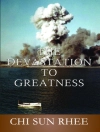Hervey Allen’s ‘Anthony Adverse’ is a sweeping historical novel set against the backdrop of the late 18th century, intricately weaving together themes of adventure, romance, and the quest for identity. The narrative follows the life of Anthony, an orphaned boy who navigates a world filled with political upheaval, personal betrayals, and the search for love. Allen’s rich, lyrical prose and detailed characterizations evoke a vivid tapestry of the period, drawing readers into the tumultuous environments of Europe and the Caribbean. As a work steeped in literary realism, it captures not only the grand historical moments but also the intimate struggles of its protagonist, making it feel both expansive and personal. Hervey Allen, an accomplished writer and poet, was deeply influenced by his own rich historical knowledge and a passion for storytelling. His experiences and travels—particularly his keen interest in the complexities of human relationships and the nuances of societal change—were significant factors in his creation of ‘Anthony Adverse.’ His ability to fuse historical events with compelling narratives ultimately stems from a profound understanding of the human condition and the historical forces that shape individual lives. I highly recommend ‘Anthony Adverse’ to readers who appreciate intricate narratives that blend historical accuracy with personal drama. This novel not only entertains but also challenges readers to reflect on the legacies of the past and their implications for personal and collective identities. Allen’s masterful storytelling will captivate anyone seeking an immersive literary experience.
关于作者
Hervey Allen was a distinguished American author, poet, and educator, born William Hervey Allen Jr. on December 8, 1889, in Pittsburgh, Pennsylvania. He left behind a notable literary legacy upon his death on December 28, 1949. His most acclaimed work is the sprawling historical novel, ‘Anthony Adverse’ (1933), which not only garnered immense popularity during its time but also became an award-winning film in 1936. The book traces the life of its eponymous hero through numerous adventures across the globe, set against the backdrop of the late 18th and early 19th centuries. Allen’s writing is characterized by a richly descriptive style and a keen sense of historical detail, which he meticulously researched to imbue authenticity into his narratives. Before penning ‘Anthony Adverse’, Allen served in World War I, an experience which deeply influenced his later works. As an author, he often infused his literature with the themes of nature and history, as evinced in his collection of poetry, ‘Ballads of the Border’ (1916). Beyond individual literary contributions, Allen was an instrumental figure in The Fellowship of American Bibliophilic Societies and the South Carolina Poetry Society. His aptitude for teaching literature was reflected in his tenure as a professor at the University of Pittsburgh and Vassar College. Allen’s legacy endures, both in the canon of American literature and in the hearts of historical novel enthusiasts.












